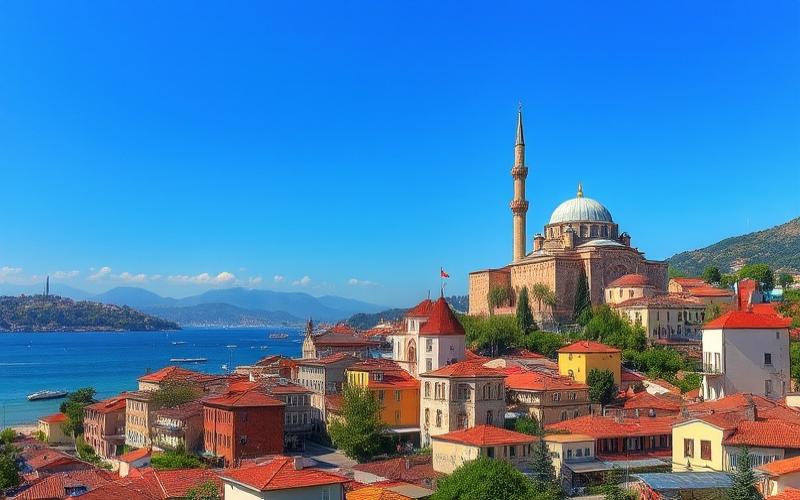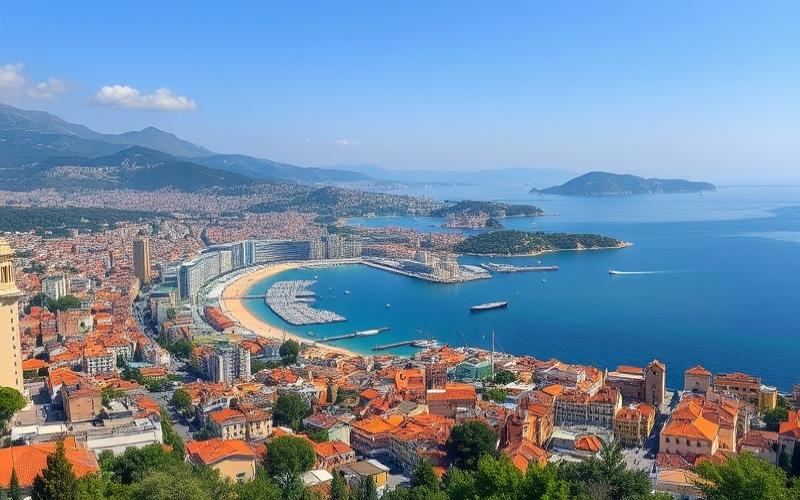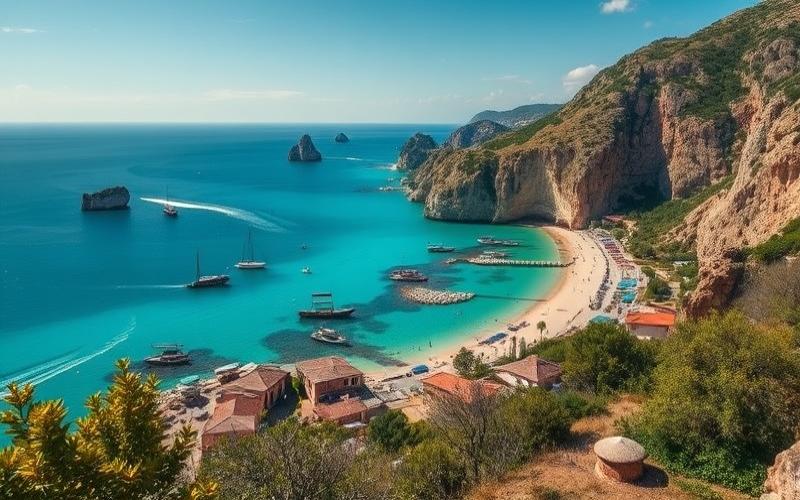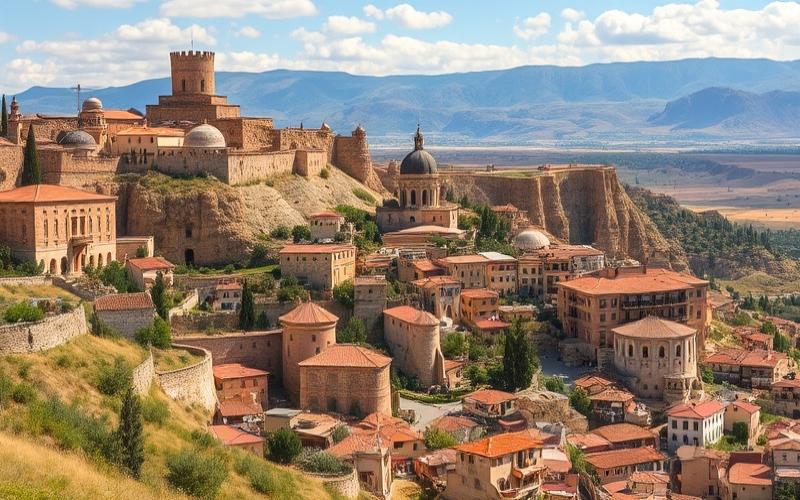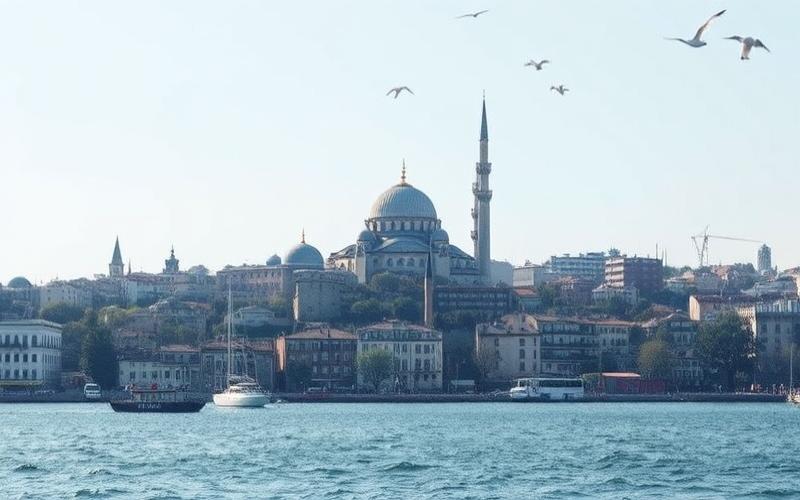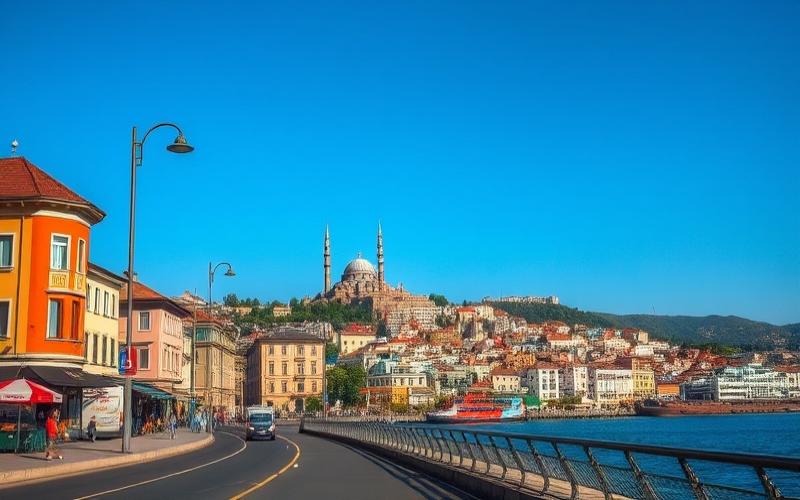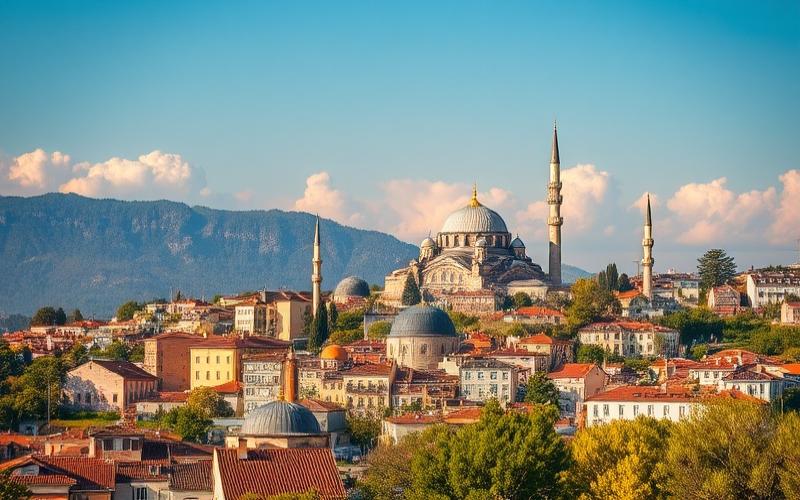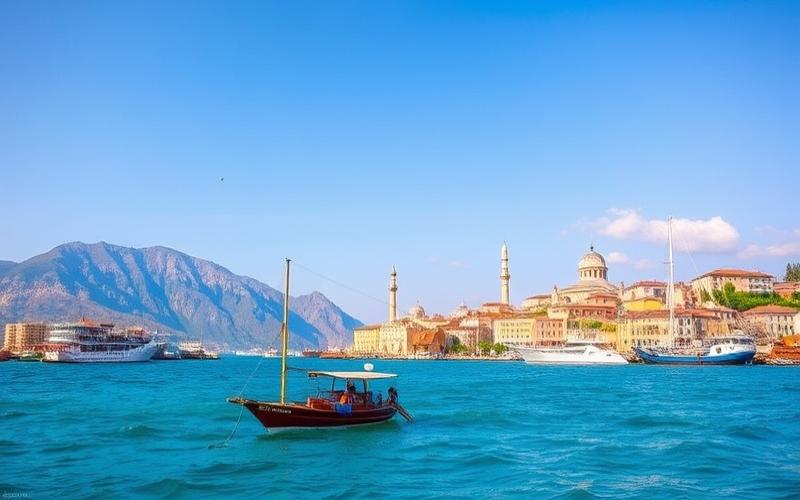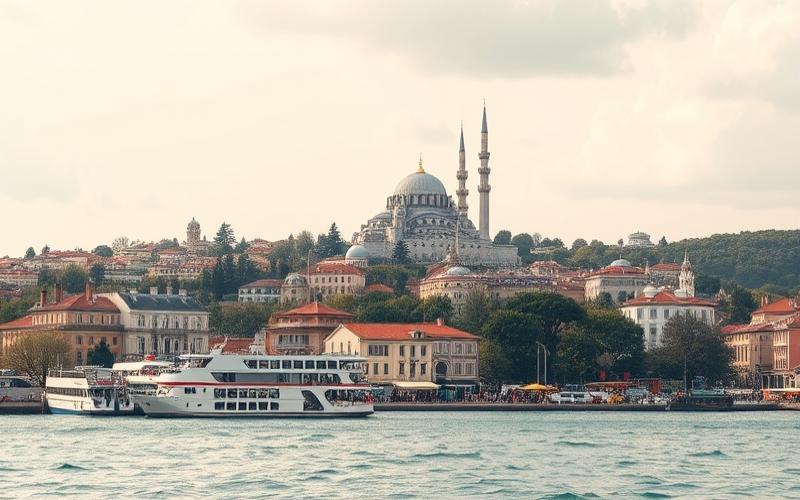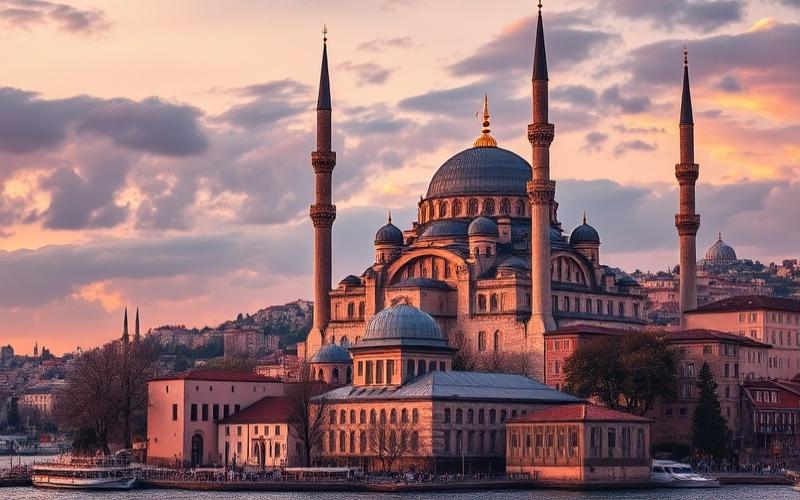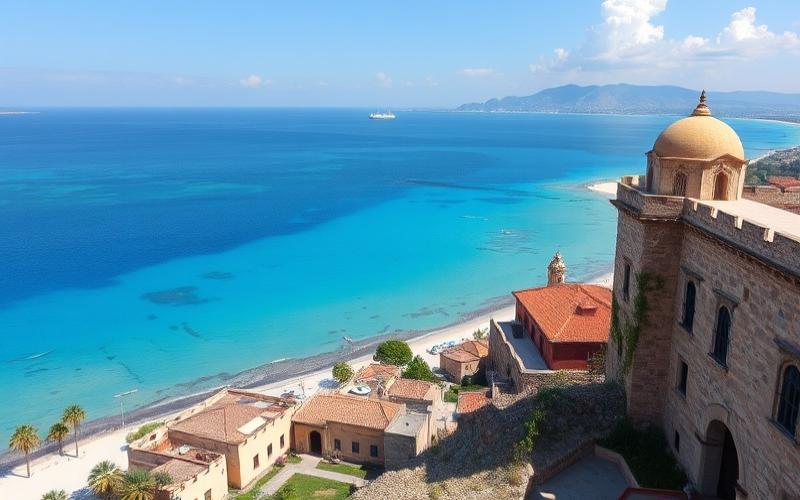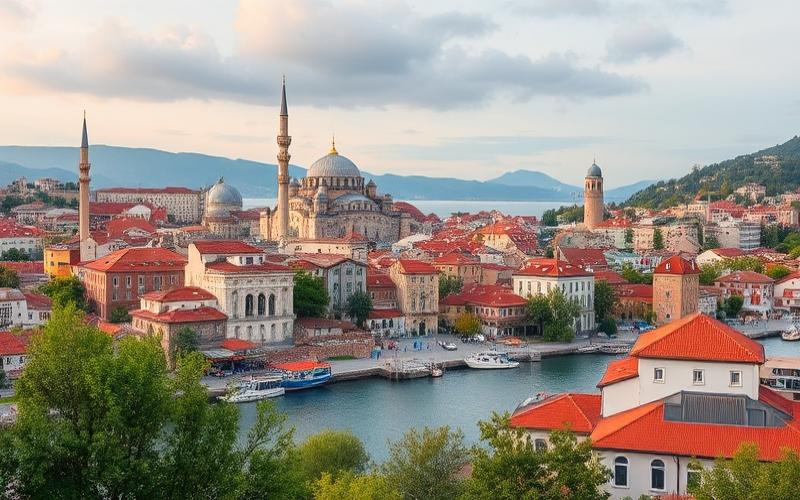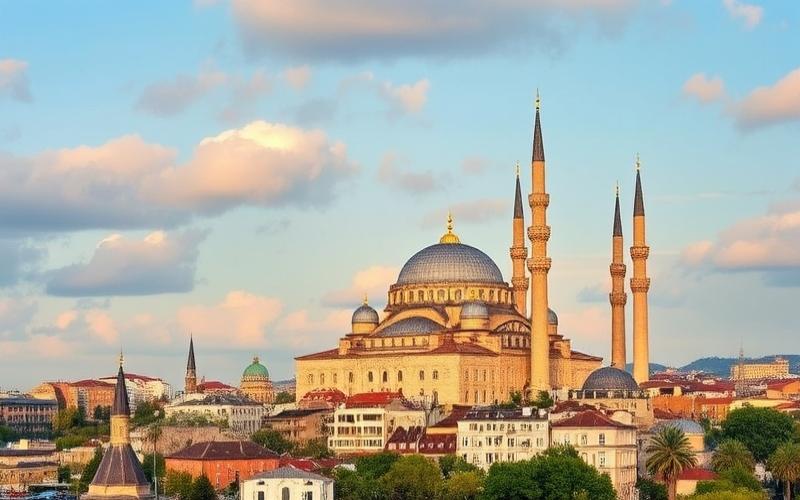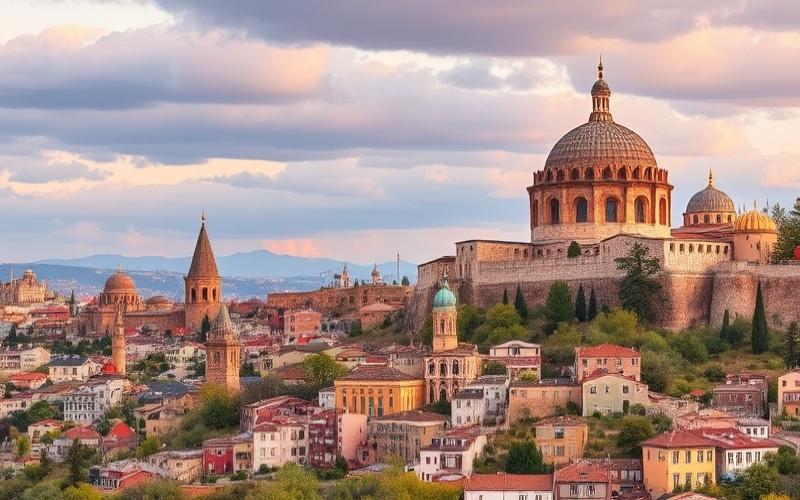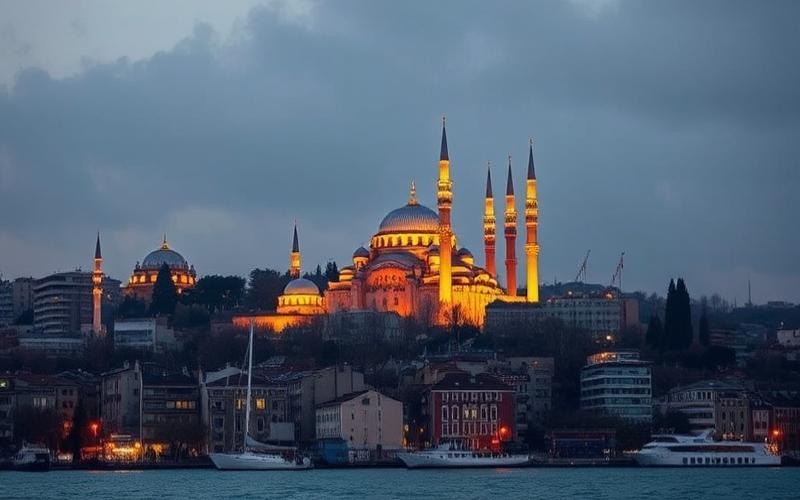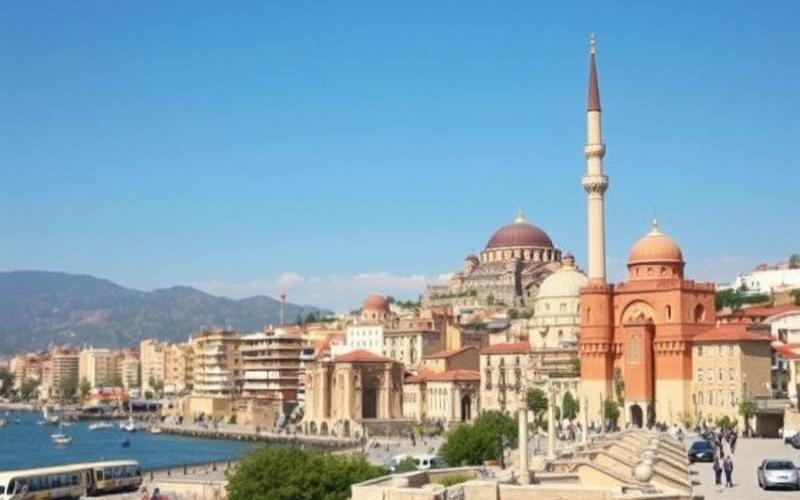
 Published on and written by Cyril Jarnias
Published on and written by Cyril Jarnias
Turkey, where Europe meets Asia, is navigating a complex period regarding freedom of expression and media regulation, topics that spark intense debate both nationally and internationally.
While some highlight government efforts toward modernization and media regulation, others criticize what they perceive as increasingly strict, even repressive control.
In a context where internal political tensions and security concerns intertwine, the Turkish media landscape becomes essential ground for examining power dynamics and the state of fundamental rights.
This article explores how stakeholders navigate between democratic aspirations and security imperatives, offering a nuanced portrait of a nation seeking balance between tradition and modernity.
Media Law in Turkey: Legal Framework and Current Regulations
Legal Framework and Current Regulations of Media Law in Turkey
Main Laws Governing Media
- Press Law (Basın Kanunu): governs the publication of newspapers, magazines, and periodicals, regulates editorial responsibilities, registration procedures, source protection, but also provides for heavy penalties in case of public order violations or damage to the state’s reputation.
- Broadcasting Law (Radyo ve Televizyonların Kuruluş ve Yayın Hizmetleri Hakkında Kanun): regulates the establishment and operation of radio and television channels; imposes obligations of neutrality, respect for national interest, and provides for administrative and financial sanctions.
- Social Media Law (No. 7253, 2020): requires international digital platforms (Facebook, X/Twitter, TikTok…) to appoint a legal representative in Turkey, quickly remove content deemed unlawful, and localize data of Turkish users. Platforms that fail to comply may face fines, bandwidth restrictions, or advertising bans.
Role of Regulatory Authorities
| Authority | Area of Intervention | Main Powers |
|---|---|---|
| RTÜK (Radio and Television Supreme Council) | Television, radio, streaming | Licensing, content monitoring, sanctions (fines, suspensions, license revocation) |
| BTK (Information and Communication Technologies Authority) | Internet, telecommunications, social media | Technical and legal monitoring, website blocking, social platform control, administrative sanctions |
| KVKK (Personal Data Protection Authority) | Digital personal data | Regulation of data processing, sanctions for non-compliance with legislation |
Freedom of Expression Restrictions
- Defamation and insulting the president: The Turkish Penal Code (article 299) criminalizes insulting the president, punishable by up to four years in prison, aggravated if disseminated via press or social media. Defamation lawsuits are frequent against journalists, opponents, and ordinary citizens.
- Dissemination of false information: Since 2022, a law provides for up to three years in prison for spreading “false information” on social media, a concept left to authorities’ discretion, reinforcing self-censorship and judicialization of opinions.
- New proposal on “influence agents” (2024): Parliament is examining a law criminalizing the collection and dissemination of information on human rights violations, with aggravated penalties in cases of “threats to national security” or during wartime.
Recent Legal Reforms and Their Impact
- Disinformation Law (2022): Strengthened prosecutions for spreading fake news; journalists and social media users are particularly targeted, leading to a retreat in public debate.
- Social Media Control Reform (2020 and 2024): Requirement for foreign platforms to collaborate with authorities, accelerated removal of content deemed unlawful, increased website and account blocking.
- Influence Agents Bill (2024): Aims to criminalize documenting and disseminating information on human rights violations, threatening the investigative and advocacy work of NGOs and independent media.
Censorship and Self-Censorship Mechanisms
- Direct censorship: Control of nearly 90% of national media by groups close to the government, frequent blocking of independent or foreign news sites, arbitrary suspensions of channels and programs.
- Digital censorship: Mass blocking of websites and social media, accelerated content removal by administrative order, fines against platforms refusing to cooperate.
- Self-censorship: Fear of legal prosecution, dismissals, economic and political pressures lead to widespread self-censorship among journalists, editors, and media managers.
Concrete Examples and Recent Data
- Turkey ranks 158th in the 2024 World Press Freedom Index (Reporters Without Borders).
- Nearly 90% of national media are controlled by groups close to the government.
- In 2022, several journalists were sentenced to prison for disseminating information deemed “false” or for “insulting the president.”
- Platforms like Twitter (X), YouTube, and Facebook were forced to appoint local representatives under threat of heavy financial and technical sanctions.
Implications for Journalists and Media Outlets
- Legal and criminal risks: Increase in prosecutions for defamation, insult, threats to national security, or spreading false news.
- Economic pressures: Withdrawal of public advertising, license suspensions, difficulties accessing official sources.
- Reduction in media diversity: Disappearance or marginalization of independent voices, strengthening of official propaganda, retreat of public debate.
- Climate of fear and self-censorship: Many journalists practice self-censorship to avoid prosecution, dismissal, or violence, affecting the quality and plurality of information.
Current Situation:
- Turkey ranked among the most repressive countries for the press
- Systematic censorship and widespread self-censorship
- Increased risks for independent journalists and critical media outlets
Good to Know:
In Turkey, media are governed by key laws such as the Press Law and Broadcasting Law, under the supervision of authorities like the Information and Communication Technologies Authority and the Radio and Television Supreme Council. Freedom of expression is restricted by severe provisions on defamation and insulting the president, often used to prosecute journalists. Recently, legal reforms have reinforced censorship and self-censorship, exacerbating legal insecurity for media professionals. For example, fines imposed by the Radio and Television Supreme Council and frequent broadcasting suspensions constitute significant pressure tools on media outlets. These restrictive measures profoundly influence the Turkish media landscape, forcing journalists and editorial teams to navigate a complex and punitive legislative environment.
Freedom of Expression: Challenges and Issues for Media Professionals
Current Laws and Regulations
Freedom of expression in Turkey is framed by several restrictive laws. The Internet Law (No. 5651) allows authorities to block websites and censor content deemed critical or sensitive, particularly on social media. Since October 2022, Article 217 A/1 of the Turkish Penal Code—nicknamed the “censorship law”—specifically targets journalists for disseminating “false information” or content considered likely to disturb public order. A recent proposal regarding “influence agents,” approved in late 2024, could criminalize the collection and dissemination of information related to human rights violations, exposing those targeted to sentences of up to twelve years in prison during conflict periods.
Specific Challenges Faced by Media Professionals
- Systematic censorship and mass blocking of websites.
- Direct political pressures: over 95% of media are aligned with the government; only a few independent media survive mainly online.
- Frequent arrests: judicial investigations targeting journalists, lawyers, digital creators for their critical publications or reports.
- Restrictions on access to public information.
- Temporary suspension of social platforms like Instagram during sensitive events.
Concrete Examples of Publicized Cases
| Date | Media / Journalist | Nature of Restrictions | Official Reason Cited |
|---|---|---|---|
| July 2025 | Sözcü TV & Halk TV | Complete broadcasting ban | Incitement to hatred / sectarian remarks |
| August 2024 | Suspension for eight days | Middle East tensions | |
| Since Oct. 2022 | Several journalists | Judicial investigations & arrests | Application of censorship law (Art.217 A/1) |
Impact of New Technologies and Digital Regulation
Authorities extensively use legislation to control content published online: over one million websites have been blocked since 2007 under Law No. 5651. Social platforms are closely monitored; their services can be suspended without notice during major political or social crises.
- Increased web surveillance
- Instant blocking or selective filtering
- Investigations against digital creators
- Judicial use against reports disseminated online
Associative and International Initiatives
Local NGOs like MLSA regularly publish reports and alerts documenting violations and pressures against independent journalism. Professional associations mobilize to provide legal aid to prosecuted journalists and raise international awareness (Amnesty International). Internationally, several bodies call for strengthened diplomatic pressure to ensure genuine media freedom in the country.
- Regular reports detailing individual cases
- Local legal mobilization (defense in courts)
- International campaigns with European institutions
Future Perspectives
The political evolution remains uncertain but concerning: announced legislative tightening via new repressive texts; enhanced control planned after each major event likely to affect the government’s image; persistent but weakened resistance from the independent sector facing high judicial risk.
| Scenario | Probable Consequences |
|---|---|
| Legal hardening | Strengthened repression & self-censorship |
| Democratic opening | Possibility of partial state control retreat |
| Status quo maintenance | Persistence of hostile climate – Associative resistance |
The current situation thus places Turkish professionals in an environment marked by constant surveillance, where every independent initiative remains under permanent threat.
Good to Know:
In Turkey, freedom of expression laws, influenced by recent amendments, often restrict media through censorship and intensified political pressures, leading to journalist arrests; the 2020 social media regulation law, requiring content removal within 48 hours, is a notable example. Challenges include limited access to information and the closure of many media platforms. Internationally recognized cases, such as the arrests of journalists Can Dündar and Erdem Gül, illustrate these restrictions. Digital platforms, although offering new avenues for expression, are subject to strict regulation, and social media is not exempt from severe filters. In response, various groups, including Reporters Without Borders and local associations, advocate for reform, despite a tense political climate. The prospects for freedom of expression in Turkey heavily depend on the evolution of the political context and future social movements, which continue to spark intense debate and increased need for vigilance by rights defense organizations.
The Role of Expatriates and Independent Journalists in Turkey
Role and Influence of Expatriates in the Turkish Media Landscape
Expatriates in Turkey, particularly in Istanbul, Izmir, and Bodrum, significantly contribute to information diversity by bringing international perspectives and journalistic standards from their home countries. Their presence fosters the emergence of alternative media, specialized blogs, and multilingual content enabling the dissemination of global analyses and viewpoints often absent from local media. Structured expatriate communities (social networks, associations, multicultural events) facilitate the circulation of ideas and the integration of foreign journalistic practices, thereby enriching the Turkish media ecosystem.
Attractiveness Factors for Expatriates in Media:
- Access to a vibrant and cosmopolitan cultural life
- Facilitated networking in international neighborhoods (e.g., Nişantaşı, Bodrum, Izmir)
- Opportunity to work for international media or create independent platforms
Legal Framework Applicable to Independent and Expatriate Journalists
The Turkish legal framework governing independent and expatriate journalists is characterized by restrictive laws and increasing censorship. Since 2011, authorities have strengthened control over freedom of expression through:
- Press and internet laws limiting the publication of content deemed sensitive
- Administrative and fiscal sanctions against critical media
- Judicial pressures: arrests, prosecutions, media closures
These measures target both local and foreign journalists, who often must operate in an environment where publishing sensitive information (human rights, corruption, criticism of power) can lead to personal and professional risks.
Role of Independent Journalists as Alternative and Critical Information Sources
In a context of media concentration and proximity between major media groups and the government, independent journalists—local and expatriate—play a central role in producing and disseminating alternative and critical information. They rely on social networks, blogs, newsletters, or international platforms to bypass censorship and offer in-depth analyses, often on topics neglected by traditional media.
Examples of Alternative Media and Independent Initiatives:
- Multilingual information platforms run by expatriates
- Political or cultural analysis blogs maintained by independent journalists
- YouTube channels and podcasts addressing taboo subjects
Risks and Impacts Associated with Their Activities
Independent and expatriate journalists in Turkey face several major risks:
| Risk | Concrete Impact |
|---|---|
| Surveillance | Wiretapping, digital surveillance, travel monitoring |
| Intimidation | Threats, online harassment, pressure on relatives |
| Legal Prosecution | Arrests, preventive detentions, heavy convictions |
| Loss of visa or accreditation | Expulsion from territory, prohibition to practice |
Examples and Concrete Case Studies
- Foreign independent journalist expelled for covering protests or publishing critical articles.
- Platform run by expatriates that enabled documentation of human rights violation cases despite censorship.
- Testimonies from expatriates in Istanbul and Izmir highlighting the richness of the alternative media ecosystem, but also the need for anonymity or caution to avoid reprisals.
International Support Initiatives
To address these challenges, numerous international organizations intervene to support independent and expatriate journalists:
- Cybersecurity and source protection training
- Legal aid and support in case of prosecution or expulsion
- Scholarships and residency programs for threatened journalists
- Advocacy with European and UN institutions for defending press freedom in Turkey
The role of expatriates and independent journalists is crucial for information plurality and the defense of freedom of expression in Turkey, but it comes with real risks requiring structured international support.
Good to Know:
Expatriates and independent journalists play a crucial role in the Turkish media landscape by enriching information diversity with international perspectives. However, they operate within a restrictive legal framework marked by censorship laws, limiting freedom of expression. These journalists serve as essential sources of alternative and critical information, especially when traditional media face government pressures. They expose themselves to considerable risks, such as surveillance, intimidation, and legal prosecution. For example, some foreign journalists have been arrested or expelled for their reporting, demonstrating the threats to their freedom. International initiatives, such as those by Reporters Without Borders, seek to support these actors and promote a freer media environment, although challenges remain significant.
Disclaimer: The information provided on this website is for informational purposes only and does not constitute financial, legal, or professional advice. We encourage you to consult qualified experts before making any investment, real estate, or expatriation decisions. Although we strive to maintain up-to-date and accurate information, we do not guarantee the completeness, accuracy, or timeliness of the proposed content. As investment and expatriation involve risks, we disclaim any liability for potential losses or damages arising from the use of this site. Your use of this site confirms your acceptance of these terms and your understanding of the associated risks.


